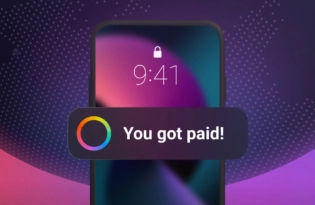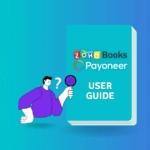HomeResourcesThe ins and outs of Receiving Accounts: How Payoneer’s multicurrency account can help SMBs expand globally
The ins and outs of Receiving Accounts: How Payoneer’s multicurrency account can help SMBs expand globally
In today’s hyper-connected world, small and medium-sized businesses (SMBs) have a unique opportunity to reach global markets like never before. But one of the most significant hurdles to international expansion is managing payments across multiple currencies and regions. This is where Payoneer’s Receiving Accounts come into play, providing SMBs with an easy, cost-effective solution for…

In today’s hyper-connected world, small and medium-sized businesses (SMBs) have a unique opportunity to reach global markets like never before. But one of the most significant hurdles to international expansion is managing payments across multiple currencies and regions. This is where Payoneer’s Receiving Accounts come into play, providing SMBs with an easy, cost-effective solution for managing global payments. These accounts can be a game-changer, especially for businesses looking to scale across borders.
What are Receiving Accounts?
Payoneer’s Receiving Accounts allow businesses to receive payments in different currencies through local bank details. For example, Payoneer users can receive funds in 11 major currencies including USD, EUR, GBP, JPY, and CAD––just as if they had a local bank account in each respective country.
These accounts make it possible to accept payments from clients and marketplaces abroad without the need for a physical presence in those countries or navigating the complexities of setting up foreign bank accounts.
For SMBs, this means removing a major barrier to global expansion: the hassle of dealing with foreign banking and currency conversion. Instead, businesses get local bank account details in key global currencies that allow them to operate in international markets as if they were local players.
How Payoneer Receiving Accounts work
Here’s a simplified step-by-step process of how to get started with receiving accounts:
- Create a Payoneer account: Start by signing up for Payoneer and getting verified.
- Request receiving accounts: You can request local receiving accounts in various currencies, including USD, EUR, GBP, and more.
- Share details with clients: You share your receiving account details (bank number, IBAN, or SWIFT code) with your international clients or marketplaces.
- Receive payments locally: Clients make payments as if they were domestic transfers, which are processed by Payoneer and land in your Payoneer account.
- Manage funds: Once the payment is received, you can withdraw the funds, convert them to a different currency, or spend them using a Payoneer card.
Your funds, your choice
Funds that you earn with local receiving accounts can be used to do all kinds of things. For example, you can make payments to your contractors, suppliers, or remote employees. Don’t have the right currency for the payment? Easily transfer funds between USD, GBP, EUR, and more with just a few clicks. It’s transparent too – see up front what you’ll receive in the new currency.
Let’s take a closer look at the specific benefits and how SMBs can leverage Payoneer to fuel their growth.
Benefits of Payoneer Receiving Accounts for SMBs
1. Eliminate the need for foreign bank accounts
One of the biggest headaches for SMBs expanding into international markets is opening and managing foreign bank accounts. Each country has its own regulations, and opening a foreign bank account typically requires local residency or establishing a legal entity in that country.
Payoneer solves this problem by providing local bank details without requiring a physical presence. For instance, a small e-commerce company based in Canada can sell on U.S. platforms like Amazon or work with U.S. clients and receive payments in USD directly into their Payoneer receiving account, without ever setting foot in the U.S. This allows businesses to scale globally with minimal administrative overhead.
Example: Imagine a small design agency in India that works with clients worldwide. With Payoneer’s USD and EUR receiving accounts, the agency can easily invoice clients in the U.S. and Europe, allowing them to receive payments locally. No need to worry about international wire transfers or opening bank accounts in foreign countries. It simplifies the entire payment process, helping the agency focus on delivering creative services instead of managing complex banking logistics.
2. Cost-effective payments with competitive fees
For SMBs, high payment processing fees can eat into profits, especially when dealing with international clients. Traditional banks often charge significant fees for cross-border wire transfers, not to mention unfavorable currency conversion rates.
With Payoneer, payments are received locally, so businesses and their clients avoid expensive international wire fees. Payoneer also offers competitive exchange rates when converting currencies, helping SMBs maximize their earnings.
Example: An Australian e-commerce brand selling products on a European marketplace like eBay or Etsy could receive EUR payments directly into their Payoneer EUR account. Since it’s treated as a local transfer, the marketplace incurs lower fees, and the seller benefits from better exchange rates when converting the funds to AUD. This can be a huge advantage for SMBs with tight margins.
3. Fast and reliable global payments
SMBs thrive on steady cash flow. Waiting weeks for an international payment to clear can disrupt operations, especially for smaller businesses. Traditional international bank transfers can be slow, and delays can sometimes extend to 10 days or more.
Payoneer provides fast and reliable global payments, typically delivering funds within 1-3 business days. For SMBs, this quick access to funds can be the difference between expanding on schedule or hitting operational roadblocks.
Example: Let’s say you’re a small marketing consultancy based in the UK, working with clients in the U.S. and Canada. Instead of waiting weeks for payments to land in your account through a traditional wire transfer, you can use Payoneer’s receiving accounts to speed up the process. Clients in North America can pay you as if they were making a local transfer, ensuring you get paid quickly and consistently.
4. Expand into new markets effortlessly
One of the greatest advantages of using Payoneer’s receiving accounts is the ability to operate as if you have a local presence in multiple countries, allowing SMBs to easily expand into new markets.
E-commerce merchants can sell on platforms like Amazon, eBay, Walmart, or Alibaba, receive payments in the local currency, and grow their international sales without worrying about payment processing challenges. This removes a significant barrier to international growth.
Example: A small fashion retailer in Spain might want to expand their customer base by selling products on U.S.-based platforms like Walmart or Amazon. Instead of managing complex currency conversions and high cross-border fees, they can use a Payoneer USD receiving account to collect payments in U.S. dollars and reinvest that money into their business. As a result, the retailer can focus on growing its global sales rather than worrying about costly payment fees or complicated banking logistics.
5. Multi-currency management for financial flexibility
With Payoneer, SMBs can hold balances in multiple currencies. This gives them control over when and how they convert their earnings, which can be advantageous in times of fluctuating exchange rates. Having this kind of flexibility allows businesses to better manage their cash flow, reinvest in global growth, and hedge against unfavorable market conditions.
Example: Consider a small tech startup based in Germany that sells software as a service (SaaS) to clients in the U.K., U.S., and Australia. With Payoneer, the company can receive payments in GBP, USD, and AUD directly into their respective receiving accounts. Instead of immediately converting these payments into EUR, the startup can hold the funds in their original currency, giving them the flexibility to convert at the most advantageous time and avoid potential losses from unfavorable exchange rates.
6. Payoneer card for instant spending
SMBs often need instant access to their funds to cover operational costs, advertising, or supply chain needs. The Payoneer card allows you to spend your earnings directly, whether online, in-store, or to withdraw cash from ATMs.
Example: A digital marketing agency in the Philippines might have global clients and earn in multiple currencies. The agency can use their Payoneer card to pay for tools like Facebook Ads or Google Workspace directly with the funds in their Payoneer account, without having to withdraw the funds into their local bank.
Final thoughts
Payoneer receiving accounts are an invaluable tool for SMBs looking to expand their business globally. They eliminate the need for foreign bank accounts, reduce payment fees, streamline cash flow management, and provide access to multi-currency accounts. Whether you’re a freelancer, e-commerce seller, or small business owner, Payoneer enables you to operate across borders seamlessly and efficiently, giving you more time and resources to focus on growth.
For any SMB looking to take the leap into international markets, leveraging Payoneer’s receiving accounts is a no-brainer.
Disclaimer
Nothing herein should be construed as if Payoneer Inc. or its affiliates are soliciting or inviting any person outside the jurisdiction where it operates/is licensed to engage in payment services provided by Payoneer Inc. or its affiliates, unless permitted by applicable laws. Any products/services availability are subject to customer’s eligibility. Not all products/services are available in all jurisdictions in the same manner. Depending on or your eligibility, you may be offered with the Corporate Purchasing Mastercard, issued by First Century Bank, N.A., under a license by Mastercard® and provided to you by Payoneer Inc., or the Payoneer Business Premium Debit Mastercard®, issued and provided from Ireland by Payoneer Europe Limited under a license by Mastercard. The Payoneer Business Premium Debit Mastercard® cannot be used at merchants or ATMs in Hong Kong or for HKD payments. If you are located in the EEA, all Payoneer Services will be provided to you by Payoneer Europe Limited, trading as Payoneer and regulated by the Central Bank of Ireland.
The information in this document is intended to be of a general nature and does not constitute legal advice. While we have endeavored to ensure that the information is up to date and correct, we make no representations or warranties of any kind, express or implied, about the completeness, accuracy, reliability or suitability of the information. In no event will we be liable for any loss or damage including without limitation, indirect or consequential loss or damage, or any loss or damage whatsoever incurred in connection with the information provided.
Related resources
Latest articles
-
How to prevent online payment fraud as an SMB
Prevent online payment fraud by overcoming challenges like phishing, fake accounts, and account takeovers (ATO) with enhanced security features from Payoneer.
-
A guide to starting a business in Estonia as a non-citizen
If you’ve thought about opening a new business somewhere with plenty of government support, expanding your business into the EU, or making it easier to work as a contractor or digital nomad anywhere in the European Economic Area (EEA), you should think about starting a business in Estonia…
-
Amazon Fees & Policy Updates 2024
Amazon regularly makes planned updates to fees and policies that may impact Payoneer customers that sell on Amazon. To keep Payoneer customers informed regarding upcoming and past updates, we’re providing a list of known changes to Amazon fees and Policy updates.
-
How Payoneer’s target exchange rate feature will help you save more on bank withdrawals
Boost savings with Payoneer’s target exchange rate feature.
-
Navigating phishing attacks: A guide to keeping your Payoneer account secure
Keeping your funds safe is our number one priority at Payoneer. While phishing attempts can happen, arming yourself with knowledge is key to keeping your data and money safe
-
Zoho Books and Payoneer integration guide
Learn how to seamlessly integrate Payoneer with Zoho Books. Follow our step-by-step guide to connect your accounts, create invoices, and manage payments efficiently. Optimize your financial operations today!














